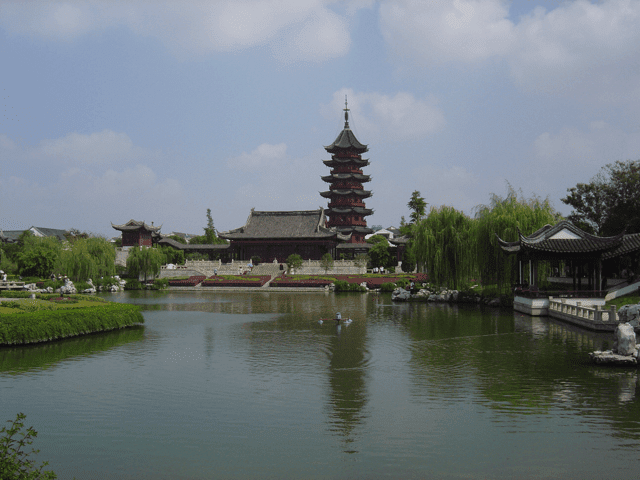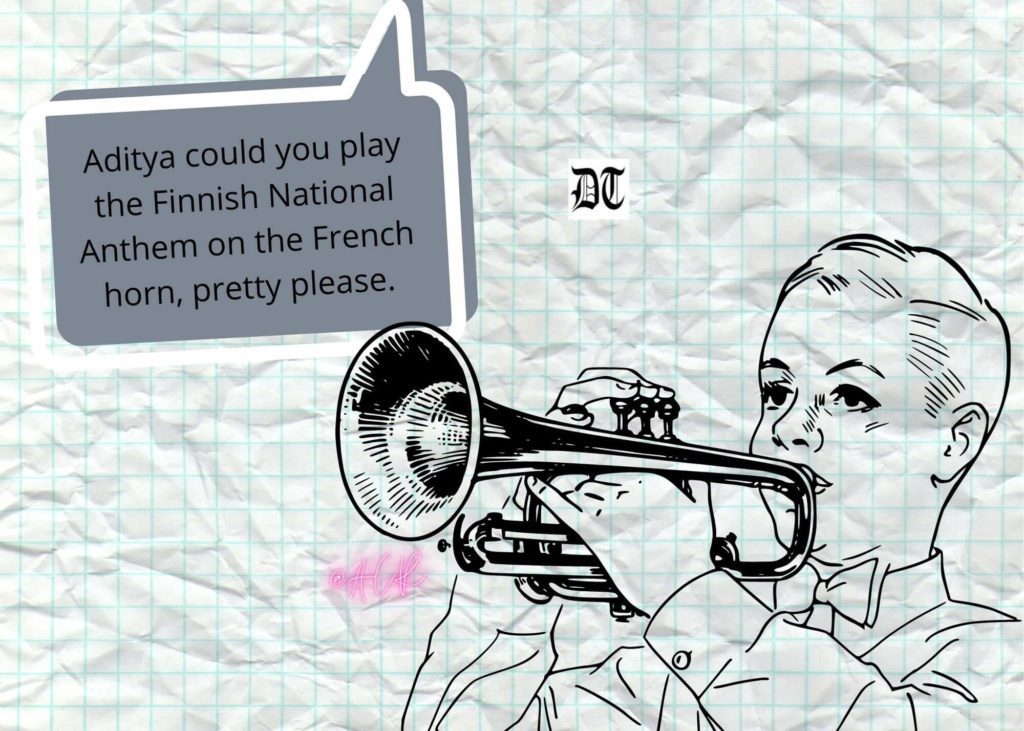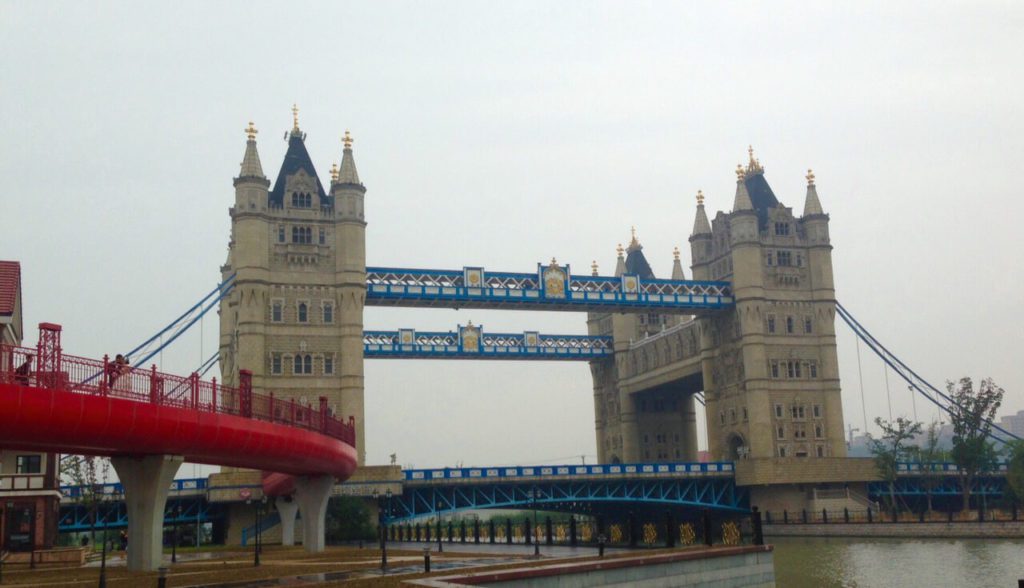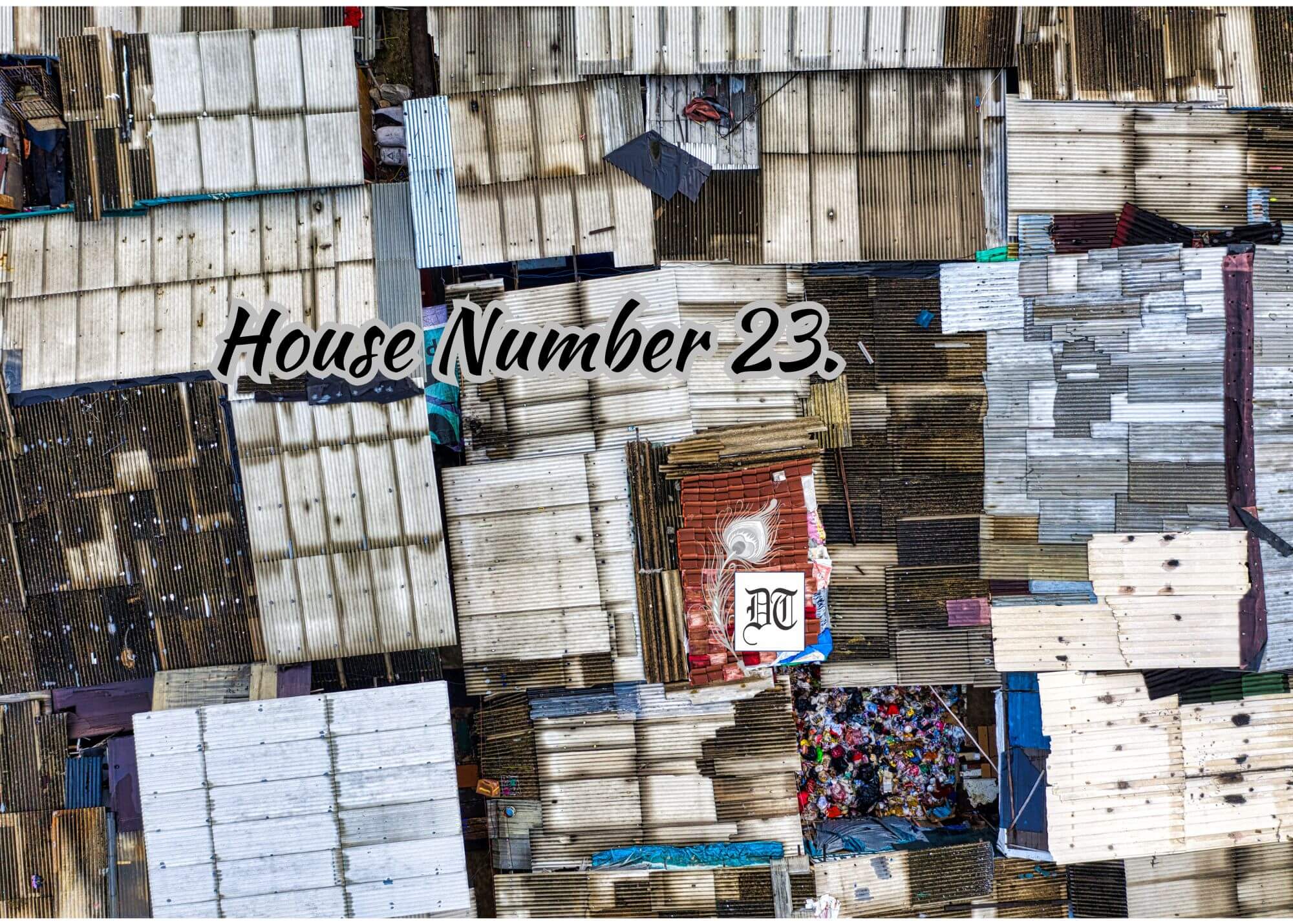In the penultimate part, Mitali shares the woes and wonders of leaving China – a weird local mover, strange rules for expats, her children who hated swanky hotels and more. An exclusive for Different Truths.

It is funny the way we pack our lives in boxes and suitcases and move on… all our memories in our hand phones or laptops. I always think of John Denver’s song Leaving on a Jet Plane1.
All my bags are packed, I’m ready to go, I’m standin’ here outside your door
I hate to wake you up to say goodbye…
The sentiment is similar, except the goodbye is to memories, places and friends.
The relocation agents helped us find movers who packed our home into boxes two weeks before our departure.
The relocation agents helped us find movers who packed our home into boxes two weeks before our departure. Earlier, the boxes could be packed on the day the expatriates were leaving. The rules concerning expat repatriation had changed a month before we were due to leave. Many rules had started to change. Xi Jinping had come to power the year before we left.
The boxes with our things and my husband’s passport had to be submitted together to the immigration for a fortnight. Earlier, instead of the passport, they were happy with a photocopy. We were asked to wait for two weeks without our essential household things. As a result, we had to move into a hotel. This was a learning that rules could change anytime in China or elsewhere. We just needed to accept the changes and adapt.
When the movers came, Surya spent all his time with Ali in his home or inside our car.
When the movers came, Surya spent all his time with Ali in his home or inside our car. The movers packed and transferred all our belongings out of the house in a huge, covered truck with their name emblazoned on the vehicle. Everything went, except for the suitcases that had our essentials for a couple of months and the children’s piano. The emptiness of the house felt strange. We wanted to hand over the keys to our landlord at the soonest.
The Pearl River piano, which was bound with happy memories for the children, had to be either abandoned or given away. Moving the piano overseas would cost more than buying a new one in Singapore. We wanted to give the piano to a child who would cherish it as much as our sons. So, we asked around and one of the expat families happily obliged. They had a lovely four-year-old daughter who was starting to learn to play the instrument. They were friends of ours – a Turkish American family with roots in California. Let us call the couple Sabrina and David for convenience. They organised the movers. Their house was about 500 metres from ours. But both the houses had staircases and the piano was delicate.
We decided to organise professional help so that the piano would not be damaged. Sabrina organised a local mover.
We decided to organise professional help so that the piano would not be damaged. Sabrina organised a local mover. He promised to come at 10.30 a.m. Sabrina and David came over at 10.15 in the morning. We waited. It was past 10.30. We waited. 11.00 O’clock. Sabrina telephoned David’s secretary to call the mover as he spoke only Mandarin. The secretary called back and said the mover had almost reached. We informed the security at the gate we were expecting a lorry. Nothing came.
Then, Sabrina’s mother-in-law called up. The mover was in their house. Sabrina ran back to get him. She returned walking in some time. We were all surprised. We had thought she would come in the mover’s van. But she came walking!
We all looked at her in askance. “He has not got his lorry. He is coming here on his e-bike,” she explained. As she finished her sentence, an e-bike drew up in front of our house.
A tiny dwarf of a skinny man got off. He smiled, nodded and greeted us, “Ni hao (how are you)?” We all greeted him too. “Ni hao.”
He swaggered in as if on a social visit. He walked towards the piano. Aditya, our translator, told him we needed to move the piano from our home to Sabrina’s.
He swaggered in as if on a social visit. He walked towards the piano. Aditya, our translator, told him we needed to move the piano from our home to Sabrina’s. He responded by saying that he needed ten men to lift it. When Aditya asked him about his lorry, he responded by saying the vehicle would break under the piano’s weight!
We were astounded! He told us the piano could not be moved that day as he would have to get ten men and they were all busy. He stayed for fifteen minutes trying to explain how impossible and unreasonable it was to think of moving the piano that day itself. Such things took time was his final verdict. He stated this with aplomb, much like a local Julius Caesar – veni, vidi, vici…
However, we were not convinced. We needed to move the piano that day as the keys had to be handed over to the landlord the next day. So, the mover came, saw and left – much like the fishpond cleaners who had given us a taste of what to expect from ‘regular’ workers.
Aditya said, “This guy is bizarre. Only two of us moved the piano at school on a trolley.”
“But we don’t have a trolley. And we need to move it today,” I said.
“We could do it by sliding the piano on a rug or a carpet,” said my husband.
The movers had packed our rugs and carpets and taken them away. Sabrina got two rugs from her home. We roped in another friend’s husband, David’s father and our driver to help us. So, half a dozen men panted up and down and up the stairs of Sabrina’s home with the piano and rugs. It took quite some time and a lot of effort. It was a case of amazing teamwork which I thought was so nice to watch but I am not so sure that it was nice for the team to heave and shove so as not to damage the piano!
Sabrina organised huge jugs of lemonade for all the movers. Aditya inaugurated the piano in their home.
Sabrina organised huge jugs of lemonade for all the movers. Aditya inaugurated the piano in their home. Now, we were officially ready to hand over the keys the next day.

The landlord came with his wife this time. They told us they would have liked us to continue as long as we were in China. They were very kind. They loved what I had done to the garden. His wife was thrilled seeing I had planted a Chinese flowering plant, called the Yue Liang Hua (the moon flower). She said this flower was associated with Shanghai, where she grew up. I knew this flower had a heady perfume and my driver often used it inside the car instead of a car perfume. They were equally excited with the fishpond, where the koi had bred and now I had nearly two dozen fishes.
We had to stay in the hotel for almost a fortnight. That was a long time for us. Staying in a hotel has always been a trial for my trio.
We had to stay in the hotel for almost a fortnight. That was a long time for us. Staying in a hotel has always been a trial for my trio. I still recall the time Aditya first stayed in Sheraton in Hong Kong. He was four and did not like the hotel food. He asked me if I could cook for him. In Hawaii, when he was six, he threw up on an exclusive hotel meal in a six-star resort, where we were having an official gathering!
Surya was not much better. When he was one-and-a-half, we were staying for a long weekend in Johor, Malaysia. He shook his foot so much in delight while seated on a high-chair in the 24-hour coffee shop of the hotel that his shoes flew off and landed on somebody in the adjoining table. Seeing the ruckus, it created, Surya decided to fling his shoes every time he was put into a baby chair in the restaurant. It became a nightmare for us. The hotel staff were terrified whenever we entered the coffee shop. They would put us in a corner table emptied of all cutlery and napkins as they did not want Surya to exercise his skills on their wares or aim his shoes at their customers!
Two-year-old Surya discovered the joys of a rotating door in the hotel. The doormen were terrified again and requested we keep him away from the doors…
When we moved to China, we had to stay a week in a hotel while our home was readied for us. Two-year-old Surya discovered the joys of a rotating door in the hotel. The doormen were terrified again and requested we keep him away from the doors – not an easy task when we were in the lobby. Surya protested being cooped in a luxurious room where he had no freedom to practise his sporting skills. He also wanted to catch the fish in an indoor koi pond in the hotel and the staff had a tough time being polite about it. Staying with a toddler in a hotel is not exactly a relaxing affair.
This time the two of them were older. We had a beautiful view of the Jinji Lake from our rooms. The sunset on the lake against the silhouette of tall buildings was spectacular. Aditya had a separate room. Surya was ten and Aditya seventeen-and-a-half. They were a little better adjusted in the hotel than eight years ago… except Surya had the whole security on my tracks when I got a little delayed in the lift one day.
I had gone to get his swimming goggles when he discovered he had left them behind in our room. I told him to get changed and wait by the poolside while I fetched the goggles. The lift was a little delayed. The lifeguards and attendants stood around him when I returned to the poolside. It seems they could not reach me when they tried to call my mobile. I had been gone only about ten to fifteen minutes. It was a big hotel, and I had the walk between our room and the pool; then I had to unlock the door and take the goggles.
Surya was singing a nonsensical song that day and doing weird walks along the corridor in a bid to dispense his extra energy.
As I was returning to the poolside, I was delayed as I was greeted by another guest, an American who lived in the hotel permanently. I had to tell him where Surya was in response to his query. We had got acquainted when he and his visiting teenage son, commented on Surya’s antics. Surya was singing a nonsensical song that day and doing weird walks along the corridor in a bid to dispense his extra energy. It was hazy with pollution outside, and we could not do our usual walk for the high PSI levels.
At home, Surya would have read, played a game, visited a friend or had one over. But in the hotel, he had to create his own sport. We had an amused audience of the American and his son… To me it was really strange that a person, even if he were living alone, would choose to stay in a hotel on a daily basis. It could be so restrictive. You could never satisfy your yearning to cook a gastronomic delight! You could never do up your room with your choice of colours and paintings. You could never invite your friends over for a meal cooked by you. You could never try out a new musical instrument in the later hours of the evening.
Trying out a musical instrument in an apartment is difficult too if you come to think of it. I remember, in Suzhou, a friend’s husband practiced his guitaring in their penthouse every night. The downstairs found it unacceptable and complained regularly.
When Aditya practiced his French horn, our Finnish neighbour upstairs was really delighted. He wanted to know if Aditya could play the Finnish National Anthem on the French horn.

We were luckier. When Aditya practiced his French horn, our Finnish neighbour upstairs was really delighted. He wanted to know if Aditya could play the Finnish National Anthem on the French horn. In fact, in my first bungalow, I remember when Aditya started the French horn in school, he would practice exactly at the time we had dinner. And it was a painful experience for us to hear what sounded like an elephants’ snorting loudly in the next room. Then, a friend told us, their kid practising the violin resembled the sound of a pig being slaughtered and the father would run out of the house with cotton stuffed in his ears! So, by and large, we had never had issues with boys practising the piano, guitar, recorder or clarinet at home in a bungalow or in the apartments. And eventually, the results of being tolerant were fabulous. My heart swelled with pride when Aditya played a solo on his French horn on stage – Beethoven’s Ode to Joy. I remember Surya was four and he loved it too. He hummed it on the way to his kindergarten. I wanted him to hum it for his teacher, but he was silent. He would not do it.
One of the things I have discovered as a parent is if you want your children to excel at something, the best option is to give them plenty of space and not push them to be child prodigies. After all Mozart – the child prodigy – had a miserable life. I wanted my sons to be happy and not prodigies. Childhood is a time for fun, for learning to think, for learning from mistakes, for being able to make noise and run and play, for wild imaginings, for make believe, for moving towards realising their wonderful dreams and finding out who they are and not who their parents imagine they want them to be.
While we waited at the hotel to leave China, we spent our time doing last-minute visits to different places, going for walks along Jinji and eating out.
While we waited at the hotel to leave China, we spent our time doing last minute visits to different places, going for walks along Jinji and eating out. Most of our friends had left for their annual home leave. Only Ali’s family remained. They were also leaving Suzhou two weeks after us and were in the process of packing their home into boxes too. Our farewell parties had all been done earlier – only the official farewells remained. We had gifts starting from calligraphies to books to oodles of Chinese tea given to us. We came away feeling we would always have friends there, not just in the expat community but among locals.
We bid adieu to a number of our favourite spots. There were these elaborate gardens; the Humble Administrator’s garden2 which was glorious during spring with cherry blossoms and our favourite, the Lion Forest Garden3, built during the Yuan Dynasty in the fourteenth century, the Panmen Gate4 and the canal around it. The Lion Forest Garden, other than plants, had concrete passages and mazes that my sons loved – much in the same tradition as the rocks that Surya and his friends liked to hack in our garden. The Panmen Gate belonged to the BCEs as did the buildings around it. We visited the 2,500year-old Tiger Hill5 with a Pagoda which leans a bit and for that reason is often compared to the famous leaning tower of Pisa. Most of these were restorations as they had crumbled not just in time but also been wrecked by the Red Guards. They had to be reconstructed again in the twentieth century.
In India where I grew up, in many of the countries I had visited in Europe and Asia, I had seen so much of preserved history that I felt reconstructions were not authentic and were less valuable.
In India where I grew up, in many of the countries I had visited in Europe and Asia, I had seen so much of preserved history that I felt reconstructions were not authentic and were less valuable. But then, I saw Angkor Wat6 which I visited after returning from China. It had to be restored brick by brick and also the temple where they shot the Lara Croft movie, Tomb Raiders, Ta Prohm. Ta Prohm was being restored by the Archaeological Survey of India. These made me feel that perhaps restorations were not such a bad thing after all – it generated jobs and preserved heritage.
One can see amazing restorations in Yogyakarta too – the Prambanan temple7, which houses a temple to Brahma and many other Hindu deities, has been restored, the guide told us, with efforts of the Muslim majority. Syncretic lore actually flourishes in Indonesia with artistes participating in the performance of Ramayana, irrespective of their religion, caste or creed. The temples we visited seemed to be populated with devout worshippers of all faiths and cultures. I do not know if breaking mosques8 to build temples that might have been built on an older Buddhist site makes any sense. Old buildings have dignity, heritage and history, which wealth cannot buy.
Wrecking an old monument to avenge a six-hundred-year-old historic event – do you feel that is justified?

Wrecking an old monument to avenge a six-hundred-year-old historic event – do you feel that is justified? Or will vandalising the statues of Columbus9 or Walt Whitman10 erase the darkness of racism that is concealed in people’s hearts? Can history be changed with violence that is in itself reflective of hatred and angst?
Imitations were another thing we enjoyed in China. Suzhou proudly hosted an imitation London Bridge11. This had nothing to do with antiquity but was a downright imitation. Having visited the original, I do have some reservations about the one I saw in Suzhou. I remember a friend of mine and I visited it for the first time. The bright red and turquoise combination and a café in one of the towers seemed a trifle strange. When we visited it last just for fun, they were growing a whole township around it.
Leaving is always sad. But this time tinged with sadness was a sense of relief.
Leaving is always sad. But this time tinged with sadness was a sense of relief. The wonder and acceptance that was evident in the local attitude towards foreigners when we came in 2006 was being replaced with a feeling that did not seem so friendly. Many of our expatriate friends were being replaced by returning Chinese. Their government welcomed back these people with hefty salaries – no questions asked. And the amazing thing was many of the returning population had taken on different nationalities. I still remember that in a function celebrating the variety of races that added colour to the school community, the American team was the largest and made up mainly of Chinese. When I mentioned it laughingly to the American team lead, she retorted in good humour, “Why? Are you jealous? Do you want some of them in India too?” In context of the current virulence towards tolerating differences in the world, that seems like another world, another era, another age.
Too many changes were taking place. We found that the local populace had started finding their voices and there were occasional disturbances we heard. Rules were being tightened. The bubble could burst any minute.
It was truly time to leave.
References:
1 https://www.azlyrics.com/lyrics/johndenver/leavingonajetplane.html
2 https://www.chinadiscovery.com/jiangsu/suzhou/humble-administrators-garden.html
3 http://www.chinatourguide.com/suzhou/lion_grove_garden.html
4 https://www.travelchinaguide.com/attraction/jiangsu/suzhou/panmen.htm
5 https://www.chinadiscovery.com/jiangsu/suzhou/tiger-hill.html
6 https://432m.wordpress.com/2016/07/08/travel/
7 https://tfipost.com/2019/11/well-done-indonesia-indonesians-restore-1100-year-old-hindu-temple/
8 https://www.britannica.com/place/Ayodhya
9 https://www.bbc.com/news/world-us-canada-53005243
11 https://www.atlasobscura.com/places/london-tower-bridge-replica
Photos by the author and visuals by Different Truths





 By
By

 By
By